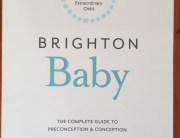 Pregnant women have been advised to have a daily supplement of 150 micrograms. Health experts are urging pregnant women in Tasmania to take iodine supplements to lessen the chances of their children developing low IQ’s. The Director of Public Health, Dr Roscoe Taylor, says most Tasmanians are iodine deficient because of low levels in soil and water. He says the health consequences of iodine deficiency in pregnant and breastfeeding women is greater because of the risk to babies.
Pregnant women have been advised to have a daily supplement of 150 micrograms. Health experts are urging pregnant women in Tasmania to take iodine supplements to lessen the chances of their children developing low IQ’s. The Director of Public Health, Dr Roscoe Taylor, says most Tasmanians are iodine deficient because of low levels in soil and water. He says the health consequences of iodine deficiency in pregnant and breastfeeding women is greater because of the risk to babies.
Dr Taylor says iodine is essential to ensure normal development of the brain and nervous system. Low levels in pregnant mothers could result in their babies having lower IQ’s. He has written to all health practitioners around the state asking them to encourage expectant mothers to take an iodine supplement of 150 micrograms every day, equivalent to eating nine cans of tuna.
Iodine is a trace mineral, often referred to as “iodide”. Iodine is vital for the thyroid hormones that regulate our metabolism, body temperature, reproduction, growth, blood cell production as well as nerve and muscle function. Low thyroid hormones can cause a person to become sluggish and gain weight, affecting their general health, their fertility and ability to carry a pregnancy.
It is important to ensure adequate iodine intake during preconception, pregnancy and breast feeding. During pregnancy, the baby is entirely dependent upon maternal iodine, which plays a significant role in normal central nervous system formation and maturation. Iodine deficiency during pregnancy is the commonest worldwide cause of preventable intellectual impairment and can be associated with losses of up to 10 -15 IQ points.
Around 60% of pregnant Australian women in a recent survey had low iodine levels -mainly due to decreased consumption of iodised salt and changes within the dairy industry. The recently published Australian National Iodine Nutrition Study in the Medical Journal of Australia has called for “the urgent implementation of mandatory iodisation of all edible salt in Australia”. The study coordinator, Professor Creswell Eastman, said urgent action is required now as it will be years before the relevant laws are implemented. He recommends 250mcg of iodine daily for those planning conception, during pregnancy and when breast feeding.
A 2006 study involving 1,709 schoolchildren across the eastern seaboard of Australia demonstrated that 40% of children were iodine deficient. The researchers called for urgent implementation of mandatory iodisation of all edible salt in Australia. This shows that iodine deficiency is extremely common and can easily be addressed.
Many occupations are at a higher risk of iodine deficiency than others. This results as chemicals of a very similar structure called halogens successfully compete with iodine for absorption and disrupt iodine metabolism. These halogens include chlorine (swimming teachers), fluorine (dentists) and bromine (found in some medications).
Natural Sources of Iodine
Iodine is generally readily available through a normal or vegetarian diet. Vegetables grown in iodine rich soils (mainly in coastal regions) and products from animals that eat these plants contain iodine as well. Iodine must be obtained regularly from the diet as it is not conserved for long term use. Supplementation should be supervised by a qualified naturopath.
Seafood – fish especially whiting, mackerel and cod, mussels
Vegetables – all but particularly beetroot, celery, fennel, spinach, lettuce, artichoke and mushrooms
Fruits – all but particularly grapes, pineapple and oranges
Seaweed – read here for my blog on edible seaweeds
Celtic sea salt has the highest levels of iodine out of all salts
Measuring Iodine Levels
Iodine levels are measured in the urine – either via a single sample or a 24 hour collection. Ask your naturopath for further information about these tests.
My Experience
When I fell pregnant with Sophia I immediately checked my iodine and it was 173 (below 100 is deemed as deficient). I took 250mcg daily throughout my pregnancy, ate fish 2/week, seaweed 1/week and used Celtic sea salt. When Sophia was 8 weeks I checked my iodine and it was 27 – breast milk is extremely high in iodine and my levels had plummeted despite my supplements and therapeutic foods. This goes to show that you cant presume anything and you simply must check your iodine every trimester, including while breastfeeding.












































































































































